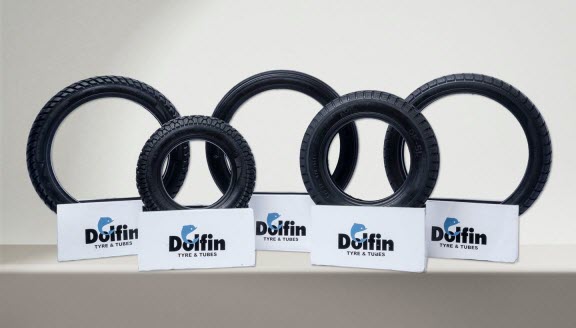In the fast-paced world of technology, every industry is experiencing a wave of innovation, and the tyre manufacturing sector in India is no exception. This article dives into the technological advancements that are reshaping the way tyres are produced, bringing efficiency, sustainability, and quality to the forefront.
1. Smart Manufacturing Integration
As Industry 4.0 takes center stage, tyre manufacturers are incorporating smart manufacturing technologies. This includes IoT-enabled sensors on the production line, providing real-time data to optimize processes, reduce downtime, and enhance overall productivity.
2. Artificial Intelligence in Quality Control
AI is playing a pivotal role in quality assurance. Cutting-edge algorithms analyze Tyre components, identifying imperfections and ensuring that each product meets stringent quality standards. This not only improves safety but also reduces wastage during manufacturing.
3. Automated Robotic Assembly Lines
Robotic automation is streamlining tyre production. From assembling components to quality checks, robots are enhancing precision and speed, leading to increased production rates and consistency in the final product.
4. Eco-friendly Materials and Sustainability
With a growing focus on environmental conservation, tyre manufacturers are adopting eco-friendly materials. Innovations include sustainable rubber sourcing, recycled materials, and energy-efficient production processes, contributing to a greener and more sustainable industry.
5. 3D Printing in Prototyping
The advent of 3D printing is revolutionizing the prototyping phase. Engineers can now create intricate designs with precision, allowing for rapid prototyping and efficient testing of new tyre models, ultimately reducing the time-to-market for innovative products.
6. Nanotechnology for Enhanced Performance
Nanotechnology is making waves in tyre manufacturing, offering improved performance characteristics. Nano-additives in rubber compounds enhance durability, grip, and fuel efficiency, providing consumers with tyres that outperform conventional alternatives.
7. Big Data Analytics for Market Insights
Tyre manufacturers are leveraging big data analytics to gain insights into market trends and consumer preferences. This data-driven approach enables them to tailor their products to meet the evolving demands of consumers, ensuring a competitive edge in the market.
8. Augmented Reality in Training and Maintenance
AR is transforming training processes and maintenance tasks on the factory floor. Technicians can use AR devices for training sessions, and maintenance personnel can access real-time information, leading to faster issue resolution and minimized downtime.

9. Cybersecurity Measures in Manufacturing
As technological integration increases, cybersecurity becomes paramount. Tyre manufacturers are investing in robust cybersecurity measures to protect sensitive data and ensure the smooth functioning of interconnected systems.
10. Innovations in Tread Design for Safety
Advancements in tyre tread design are enhancing safety on the roads. Engineers are using advanced simulations and testing to create treads that offer superior traction, stability, and performance in various driving conditions.
11. Energy-Efficient Manufacturing Processes
Energy efficiency is a key focus in modern tyre manufacturing plants. Sustainable practices, such as utilizing renewable energy sources and optimizing energy consumption, are becoming standard, reducing the environmental impact of production.
12. Blockchain for Supply Chain Transparency
Blockchain technology is being employed to enhance transparency in the tyre supply chain. This ensures traceability of raw materials, promoting ethical sourcing practices and providing consumers with confidence in the origin and quality of their tyres.
13. Customization Through AI Algorithms
Consumers are increasingly seeking personalized products. AI algorithms are being used to analyze customer preferences and driving habits, allowing manufacturers to offer customized tyre solutions that cater to individual needs.
14. Collaboration in Research and Development
To stay ahead in the rapidly evolving industry, tyre manufacturers are collaborating with tech companies and research institutions. These partnerships foster innovation, bringing together diverse expertise to drive breakthroughs in tyre technology.
15. Adoption of Green Chemistry in Rubber Compounding
Green chemistry principles are influencing rubber compounding processes. Manufacturers are exploring eco-friendly chemical alternatives that not only improve the performance of tyres but also minimize the environmental impact of production.
Conclusion
In conclusion, tyre manufacturing in India is undergoing a remarkable transformation, thanks to these technological advancements. From smart manufacturing to sustainable practices, the industry is embracing innovation at every turn, promising a future of safer, more efficient, and environmentally conscious tyres.
FAQs About Tyre Manufacturing in India
Are these technological advancements specific to India, or are they global trends?
These advancements are global trends, but their implementation may vary based on regional priorities and industry regulations.
How do these innovations impact the cost of tyres for consumers?
While initial investments in technology may influence costs, increased efficiency often leads to competitive pricing for consumers.
Can these technologies address the environmental concerns associated with tyre disposal?
Yes, sustainability measures, such as recycling and eco-friendly materials, aim to minimize the environmental impact of tyre production and disposal.
How do AI algorithms personalize tyre solutions for individual consumers?
AI algorithms analyze data on driving habits, preferences, and road conditions to recommend or create tailored tyre solutions.